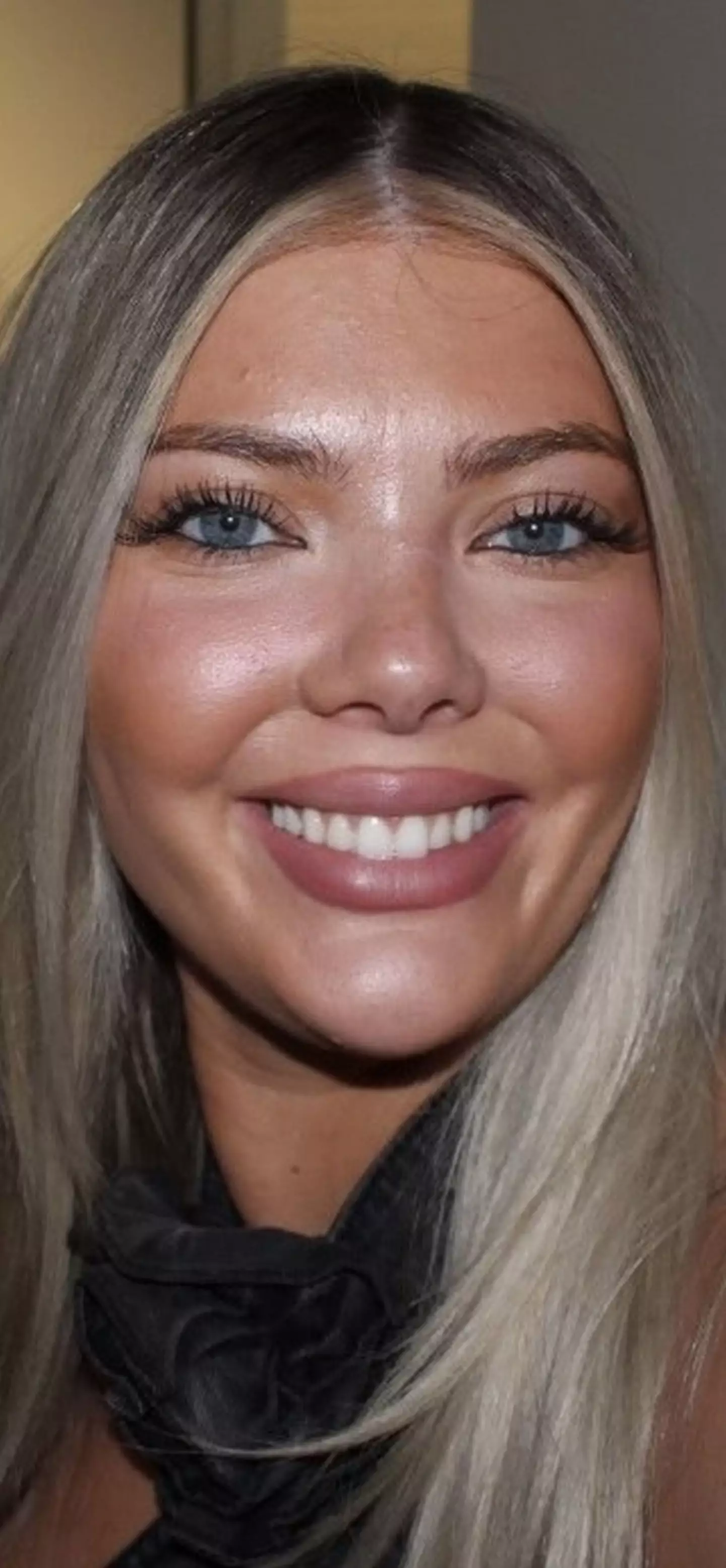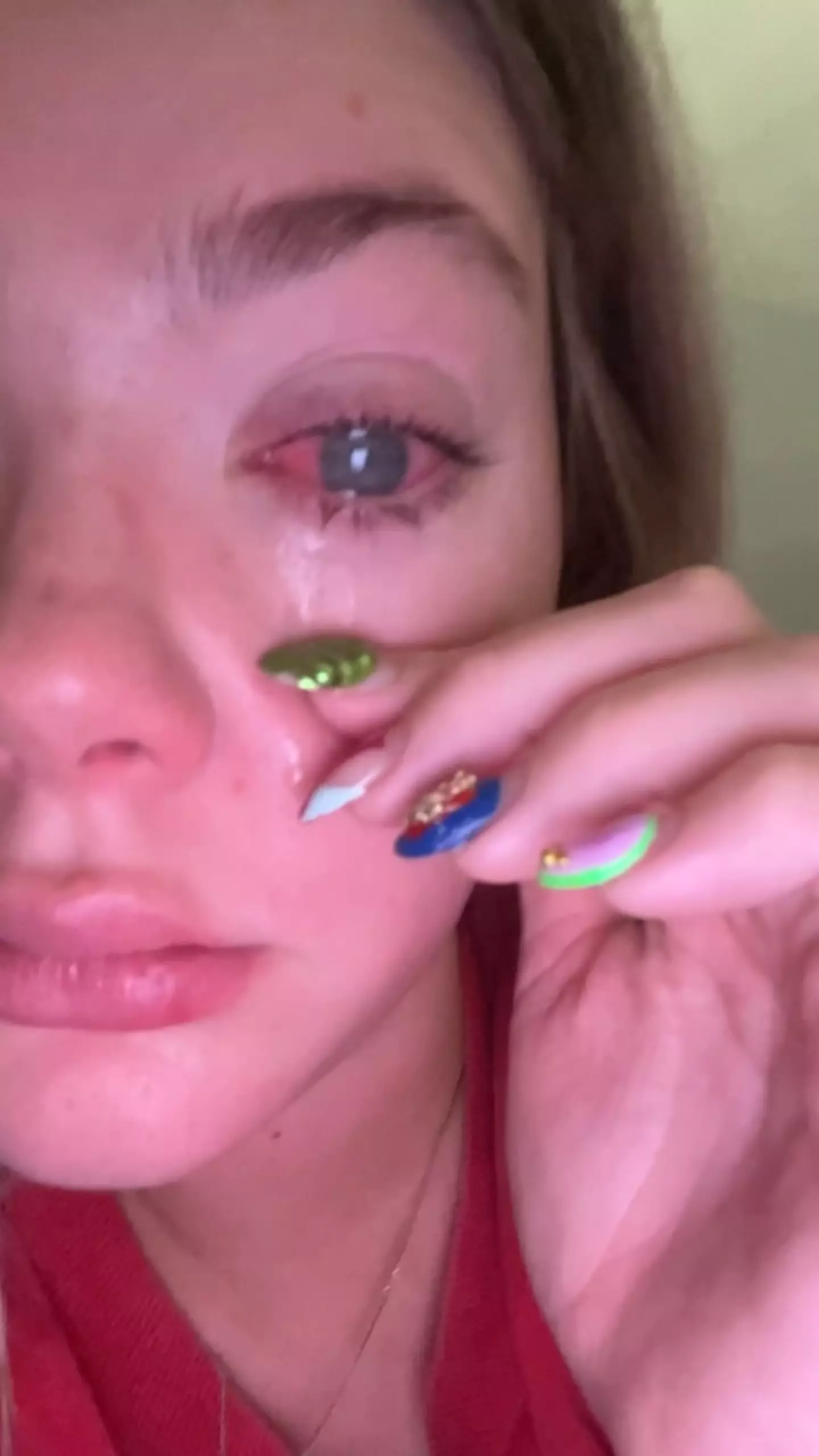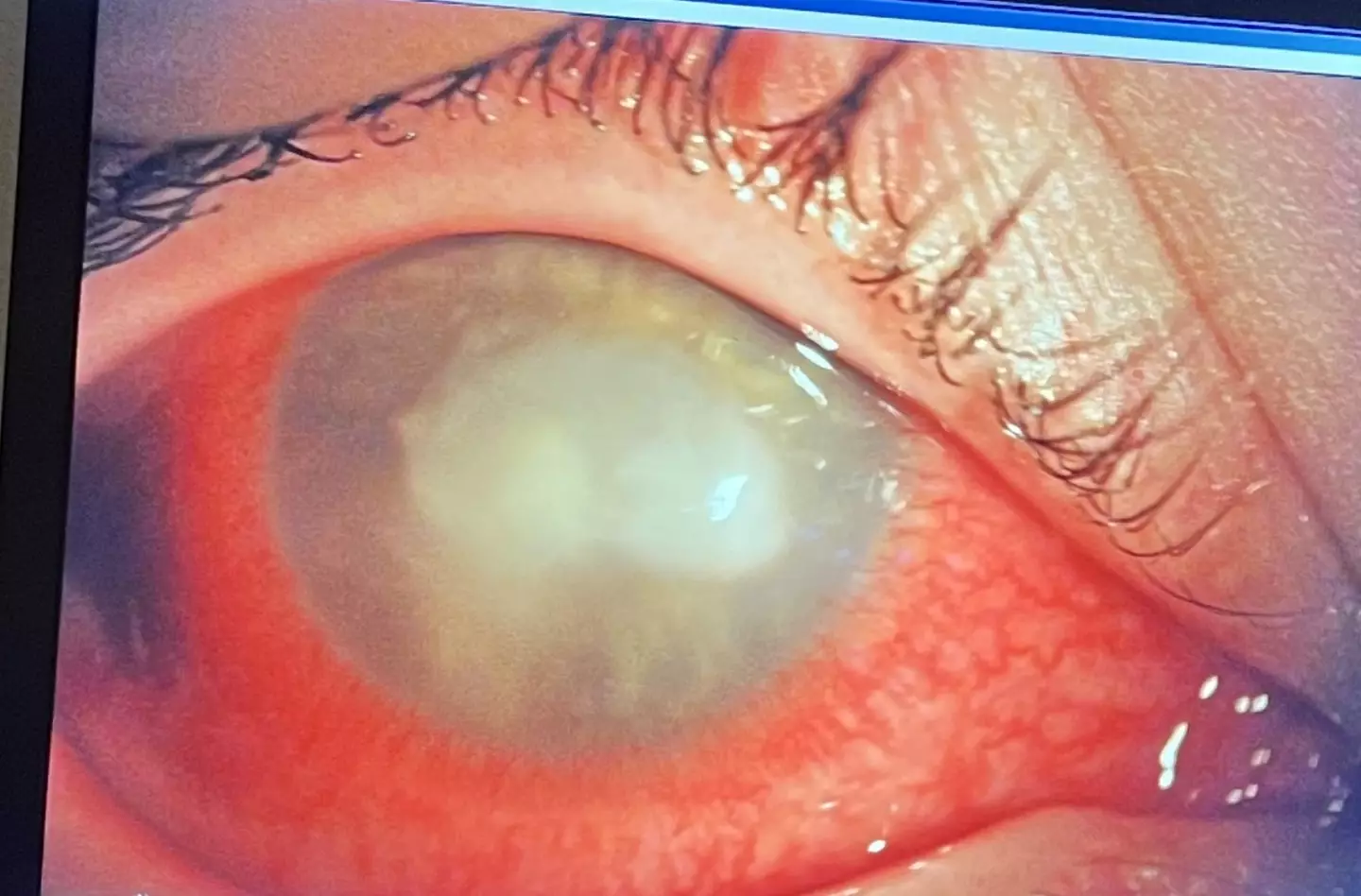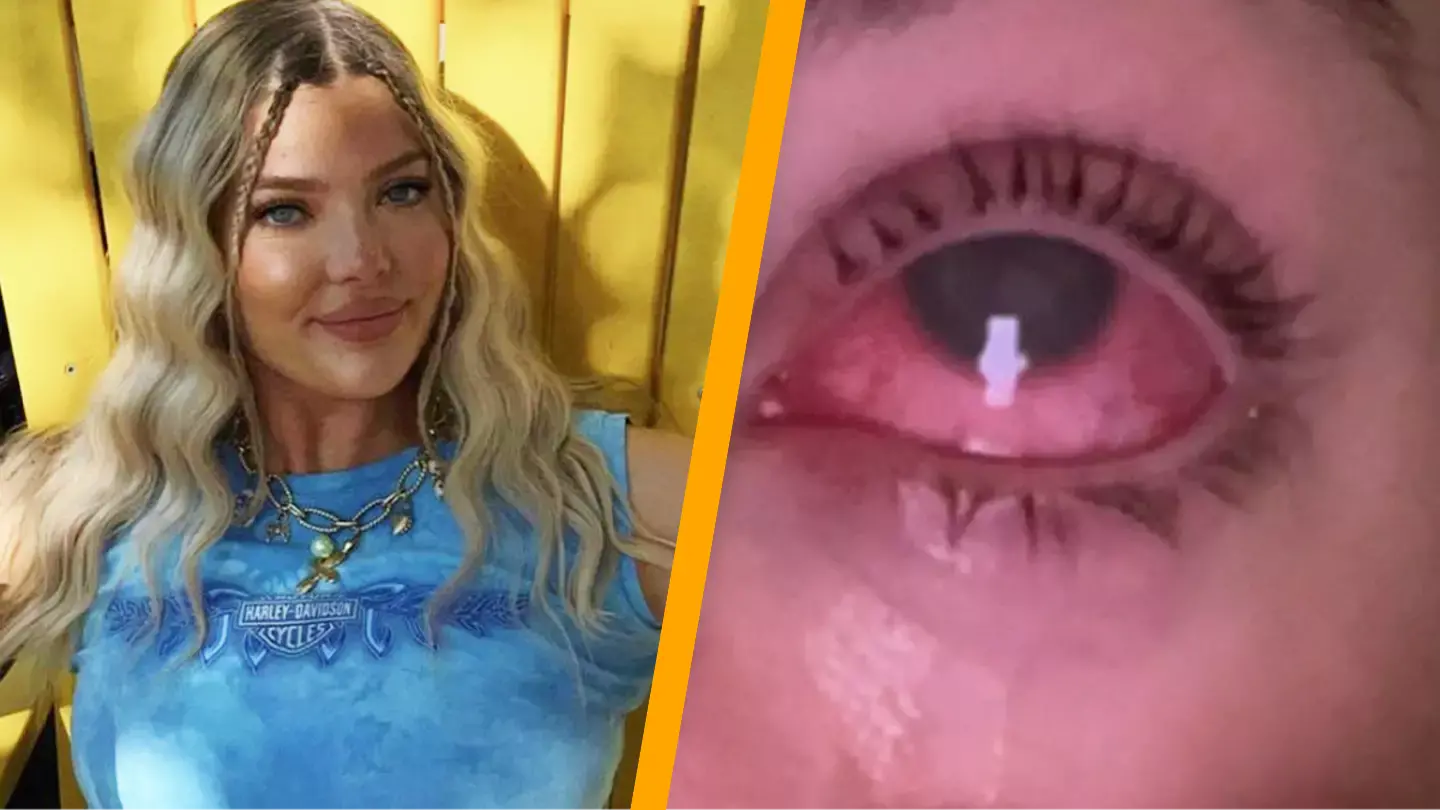Warning: This article contains graphic images and video which some readers may find distressing.
In Texas, a young woman is sharing her experience to bring attention to a severe error she made with her contact lenses, resulting in blindness in one eye.
Brooklyn McCasland was vacationing in Alabama with her friends when she went swimming in the ocean and soon after, experienced eye irritation.
Initially believing it to be merely a ‘piece of sand’, she visited a local doctor who assumed it was a ‘regular infection’, provided her with eyedrops and antibiotics, and sent her on her way.
The 23-year-old was unaware that it was significantly more serious than just a grain of sand. Contact lens users, take heed of this cautionary tale.

Brooklyn’s vision in her right eye began to blur, leading to a referral to a specialist. Scans revealed a shocking truth.
Instead of a grain of sand, the specialist found acanthamoeba parasites embedded in her cornea.
The Cleveland Clinic describes: “Acanthamoeba keratitis is a rare eye infection you can get from an amoeba, a microscopic creature similar to bacteria but a little more complex.”
This rare parasitic infection impacts the cornea and usually targets one eye at a time, though both can be affected, initially attacking the ‘outermost layer of your cornea, the epithelium’, before penetrating deeper.
How did these parasites end up in Brooklyn’s eye?

The parasites likely entered Brooklyn’s eye during her swim in the ocean, becoming trapped because she was wearing contact lenses.
The Cleveland Clinic states that contact lens users and those with weakened immune systems are at the ‘highest risk of contracting’ acanthamoeba keratitis.
Once lodged in her eye, the parasite multiplied and started consuming the tissue in Brooklyn’s eye.
She recounted: “I came back for one of my appointments and I was in really, really bad pain and she said I had an abrasion on my eye.
“I had to wear a patch over my eye. I couldn’t put any of my drops in for two days.
“I came back and she took the bandage off and said the abrasion had healed but my eye infection had gotten worse because we weren’t using any drops to keep the infection down.
“She put me back on the drops. I came back in two days and my abrasion was back and my infection was still worse.
“After she took the bandage off I was completely blind in my right eye. She said it should go away but it never did. I’m pretty much permanently blind in my right eye now.”
She added: “It was the worst pain I’ve ever experienced. It kind of felt like glass was in your eye.
“Sometimes if I shut my eye it would feel a little bit better but sometimes it would feel worse. It was just constant pain.”

Research suggests there ‘could be up to 1,500 cases in the US every year’, making it crucial to recognize the signs of acanthamoeba keratitis.
Symptoms may include:
The most frequent method of contracting the parasite involves improper contact lens usage; wearing them for extended periods, failing to wash hands before application, improper storage, swimming with them, eye injuries, or exposure to contaminated water.
Cleveland Clinic states that the condition is ‘treatable, but the best way to deal with this condition is to prevent it from happening’. If contracted, medications such as antiseptic drops and surgical options like a $5,000 cornea transplant, which Brooklyn hopes to undergo to regain her sight, are available.
A GoFundMe campaign has been set up to help Brooklyn, who had to quit her job and is saving for the costly surgery.
She reflected: “I started wearing [contact lenses] when I was seven. I wore them everywhere: to the pool, showered in my contacts and swam in my contacts. I even washed my contact case with tap water to clean it out. Now I know you’re not supposed to do it but I’ve done that for forever.
“[…] Just because it’s a rare condition, it doesn’t mean it can’t happen to you. […] People need to be careful and understand that anybody can get it.”

